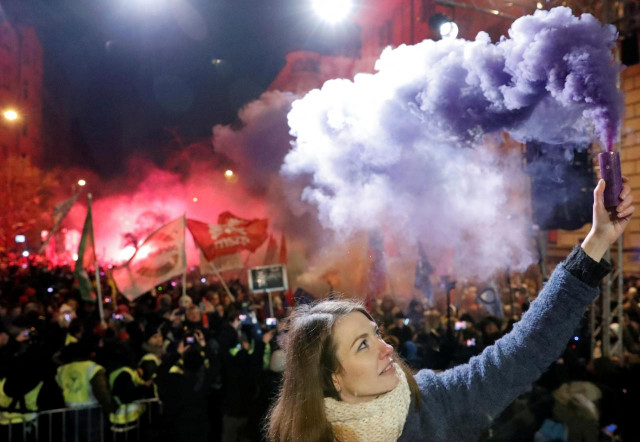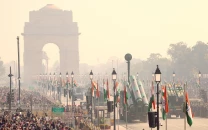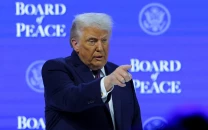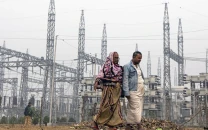'All I want for Christmas is democracy,' say Hungary protesters
About 10,000 demonstrators demand free media, independent judiciary and withdrawal of labour law increasing over time

Braving sub-zero temperatures, setting off flares and waving Hungarian and European Union flags, about 10,000 demonstrators walked from historic Heroes’ Square toward parliament and the state TV in a march dubbed “Merry Xmas Mr Prime Minister.”
The march was largely peaceful until police fired tear gas at protesters jostling outside the TV station late at night. Footage showed people crouching and blinded by the gas.
The demonstration was organized by opposition parties, students, and trade unions to demand free media, withdrawal of a labour law increasing over time, and an independent judiciary.
“All I want for Xmas is democracy,” read one banner.
EU parliament pushes Hungary sanctions over Orban laws
Hundreds of police in riot gear shepherded what was one of the biggest demonstrations Orban has faced since he rose to power in 2010 and began wielding his large parliamentary majority to pressure courts, media and non-government groups.
The prime minister projects himself as saviour of Hungary’s Christian culture against Muslim migration into Europe, and won a third straight term earlier this year.
On Saturday, Orban’s ruling party Fidesz said “criminals” were behind the “street riots” and accused Hungarian-born US billionaire George Soros of stoking the protests.
Thousands rally to keep Soros-founded university in Hungary
Soros is a strong critic of Orban but denies claims against him as lies to create a false external enemy.
Late on Sunday, several opposition lawmakers gained access to the state TV building in Budapest seeking to have a petition readout, but security personnel told them that was impossible.
“The TV is lying!” shouted protesters, of the state channel viewed as a mouthpiece for the government.
“Dirty Fidesz!” they added.
“Discontent is growing,” said Andi, 26, a sociology student who did not want to give her full name.
“They have passed two laws this week which ... won’t serve Hungarian people’s interest,” she added, referring to the labour legislation critics dub a “slave law” and new courts for sensitive issues such as elections, protests and corruption.
Frequently clashing with the European Union over his policies, Orban has tweaked the election system to favour Fidesz and put loyalists at the head of institutions, while allies have enriched themselves.
But he has rarely angered large voter groups at home, and the opposition is weak and fragmented.


















COMMENTS
Comments are moderated and generally will be posted if they are on-topic and not abusive.
For more information, please see our Comments FAQ